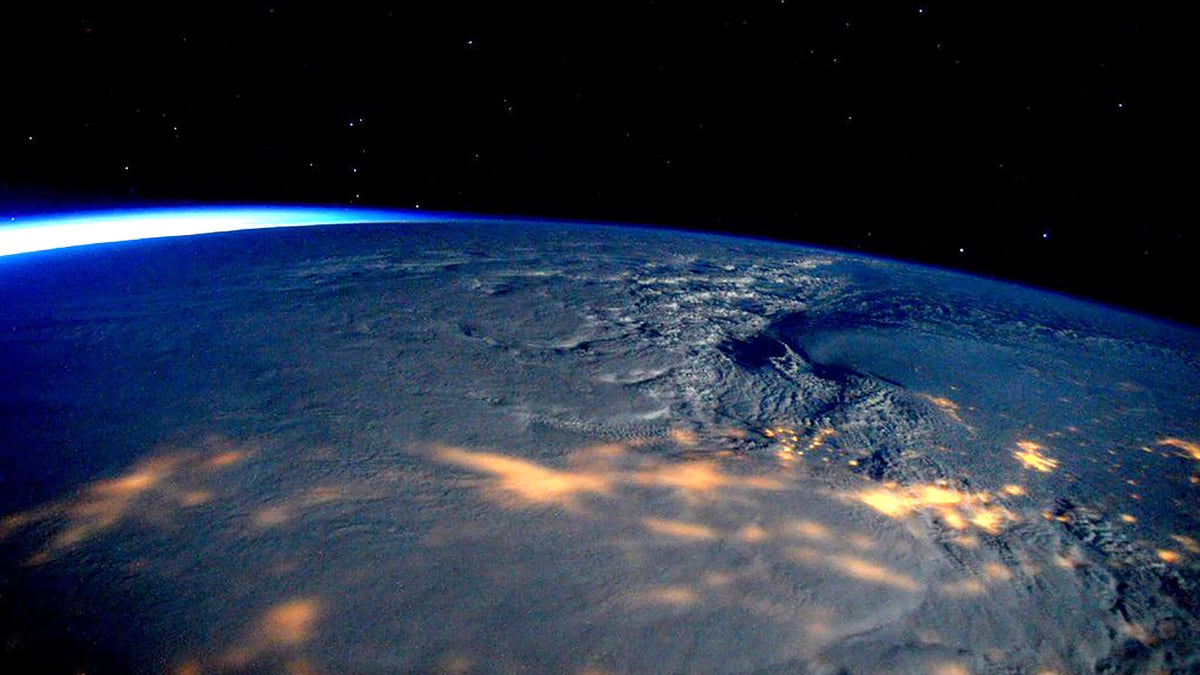
A winter storm affecting the U.S. East Coast is seen in a NASA picture taken from the International Space Station January 23, 2016. (REUTERS/NASA/Handout)
Scientists have analyzed the statements that astronauts have made when they see Earth from above, and landed on a common, powerful theme: a sense of awe and transcendence.
David Yaden, a research scientist at the University of Pennsylvania, examined the quotations from astronauts that appeared in places like interviews or books.
The awe the scientists detected “seems to be triggered by viewing Earth from orbit,” Yaden told FoxNews.com. “It seemed to be this unique context for triggering this very overwhelming experience.”
Related: Exploding stars leave radioactive clues beneath Earth's oceans
While feelings of awe and transcendence— a connection to something much bigger— are frequently associated with religion, what’s interesting about awe in spaceflight, Yaden said, is that it occurs in a scientific, secular context.
Awe gets triggered, Yaden said, when people perceive a sense of vastness. In space flight, that happens in two ways— both perceptually, in terms of what the astronauts actually see, and conceptually.
Related: 1917 glass plate offers oldest evidence of exoplanetary system
“People are not only talking about the perceptual aspect of seeing the beauty of the earth hanging in this massive black background of space,” Yaden said, “but also the conceptual vastness, of how that pale blue dot contains the totality of all that human beings care about.”
“We learned that viewing Earth from orbit is probably among the most potent awe interventions available,” he added, saying that it’s an extreme version of the feeling people have when they travel to a new place or view a beautiful sunset.
This feeling of vastness astronauts feel was aptly described by author Frank White as “the overview effect.”
Related: NASA releases cool images of dwarf planet Ceres
Yaden said they hope to partner with NASA or a private agency to pursue the research further. The study was published recently in the journal The Psychology of Consciousness.
“I had another feeling, that the Earth is like a vibrant, living thing,” Chinese astronaut said Yang Liu said, in one of the statements the authors included in the study. “I said to myself: this is the place we live, it’s really magical.”








































